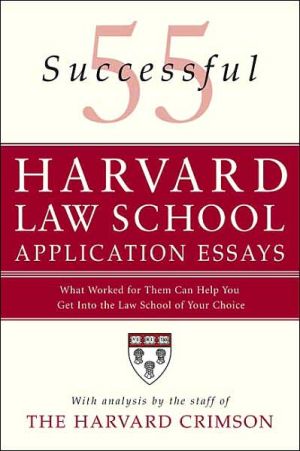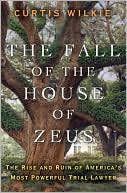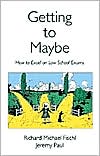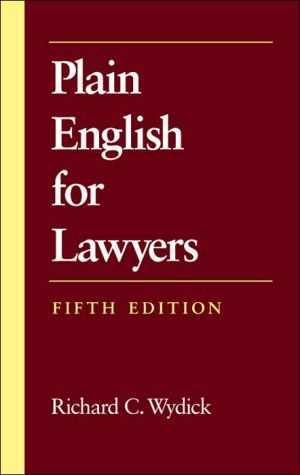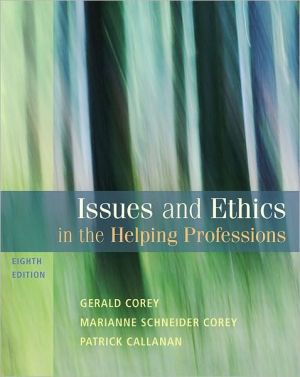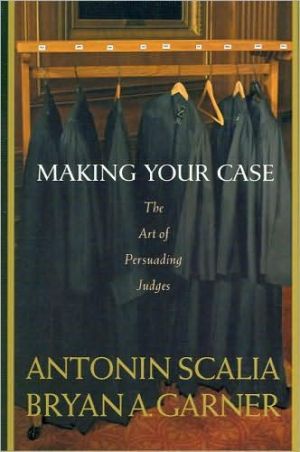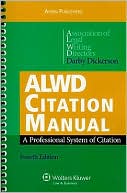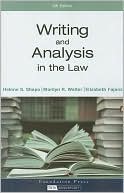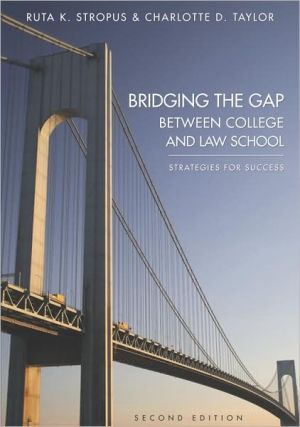55 Successful Harvard Law School Application Essays: What Worked for Them Can Help You Get into the Law School of Your Choice
Separate yourself from the pack\ Competition has never been more intense for admittance into the nation's top law schools. The application essay represents your only chance to plea your case to admissions officers. Why select you over so many other qualified applicants?\ Your essay needs to do more than simply list your background and accomplishments. It must reveal the depth of your passion for law, the discipline you bring to this demanding profession, and the strength of character you...
Search in google:
Separate yourself from the packCompetition has never been more intense for admittance into the nation's top law schools. The application essay represents your only chance to plea your case to admissions officers. Why select you over so many other qualified applicants?Your essay needs to do more than simply list your background and accomplishments. It must reveal the depth of your passion for law, the discipline you bring to this demanding profession, and the strength of character you possess for the ethical and moral challenges that lie ahead.Learn by exampleHarvard Law School is one of the premier law schools in America. Every year, thousands of elite applicants try for a few hundred slots. Of the dedicated few accepted, fifty-five have shared the application essays that helped them make the cut.* Learn what works. * Structure your essay for maximum impact. * Avoid common pitalls. Each essay is analyzed by the staff of the Harvard Crimson, Harvard's daily newspaper, and accompanied by no-nonsense advice on crafting your own. 55 Successful Harvard Law School Application Essays will give you all the help you need to write the essay that will get you in.
Constructing Your Identity Kenneth Basin They had been subjected to indignity after indignity. They had paid over six months' salary per person for the "privilege" of relinquishing their Soviet citizenship (though conveniently enough, they had lost their jobs upon applying for their visas and being labeled refusniks). They had stood quietly as armed soldiers barraged them with accusations of treason, anti-Semitic slurs, and threats of imprisonment. But standing in that train station in the Ukrainian border town of Chop, waiting for the train that would take them out of the Soviet Union and on the first leg of their journey to the United States, my parents had finally had enough: they would not let a book of Grimm's Fairy Tales go. The Russian customs official who made the final inspection of their bags had removed only the book, leaving my parents grateful that they had gotten off rather easily. But as they started toward the train platform, my sister (then five years old) lingered behind, growing increasingly hysterical at the loss of her favorite book. My father pled with the official, not as a refusnik to a soldier or a Jew to an ethnic Russian, but as one father to another, for the return of his daughter's beloved book. It was November 22, 1981, and my parents and sister boarded their train westward with two suitcases of clothing, $210 in cash, and a book of Grimm's Fairy Tales. Though I was not yet born, it is a story I have to come to know and feel as deeply as any of my own. In my experience, it is in the home that one's eyes are first opened to the outside world, and my parents saw to it from early on that my eyes were wide open. With a family that had immigrated as political refugees to the United States, arriving in January 1982, international affairs took on a whole new life within my home. The end of the Cold War and the collapse of the Soviet Union were more than headlines my father read in the newspaper; they were personal experiences shared by every member of my family. When I began my studies at the University of Southern California, then, I never doubted that my cosmopolitan interests would find a way to express themselves. I set out on a study-abroad program to London in January 2004 in search of the one lesson I felt that USC, or any American university, could never truly offer me: perspective. And so it was that on my summer break in Europe after attending King's College London, I found myself retracing my parents' experiences through the continent on their way to the United States. In Eastern Europe, the legacy of Soviet Cold War domination allowed me to communicate using my proficiency in conversational Russian. In Bratislava, I arrived by train at the same station that received my parents' train from Chop. In Vienna, I passed by the palace where for six days my parents were held under armed guard to protect them from terrorists who had been targeting Jews and other refugees from the east in the winter of 1981. In Rome, I strolled through the neighborhood where my parents spent three weeks, waiting for their visas to enter the United States to clear. Given my experience with my family, my interest in international law comes as little surprise. When I consider the challenges my parents faced in the repressive climate of the U.S.S.R. during the Cold War, as well as those they confronted in trying to escape it, the vitality of the field takes on a whole new salience for me: the modern world is a deeply interconnected one, and with that interconnection comes an underlying sense of uncertainty. If man is to survive that uncertainty, he must find in it a guiding order. In my mind, international law is the means by which humanity can find that essential order and, with it, the stability and progress necessary to thrive. In the end, I have come to feel very strongly that the whole world is my home and, more than that, my responsibility. From the twinkling lights of Paris to the dusty corridors of one-time communist Budapest, from the bustle and excitement of the Turkish bazaar to the natural peace and beauty of Australia's Great Barrier Reef, I have long believed that the world is my classroom. I have very much enjoyed attending class. Review by Emma Lind This essay's effectiveness rests in its deeply personal nature. Because Kenneth's interest in international law can be understood only in terms of his family history, it could not have been written by anyone else. The fact that he is able to communicate the profundity of his family's escape from political oppression with clarity and concision, and then spin that into his personal draw to the field of law, is what makes this essay dexterous and strong. The first sentence of the essay is punchy, essential to grabbing a law school admissions officer's attention and ensuring that [he or she] remember[s] the essay when comparing [Kenneth's] application to others. The introductory paragraph delivers what the first sentence promises: a gripping story that is universally fascinating but holds enough personal elements to give it a raw authenticity. This is the strongest paragraph in the essay, as it communicates the author's ability to synthesize information he heard from his parents and establish both a historical context for it and a deep personal connection to it. The second and third paragraphs clearly transition the essay from a story of [Kenneth's] family to a story of himself. His mention of study in London gives purpose to his decision to go abroad, which would appear on his transcript without any context or explanation. Notice also how he mentions that he speaks Russian, and communicates his interest and dedication to history, without being ostentatious about it. He mentions law only at the end of the essay, but the connection is strong enough that his conviction comes off as confident and to the point. Kenneth, however, could have done more with his last sentence, which is trite and doesn't draw on a theme present throughout the essay. He should have mentioned his family history again to bring the essay full circle. Nicole Dooley It usually takes people several attempts to figure me out. With the toffee-colored skin and curly hair that I inherited from my black father and Puerto Rican mother, my racial heritage has never been easy to guess. I've been assumed to be white, black, Hispanic, South Asian, and Middle Eastern, to name a few. With my background so hard to place, I could fit quite nicely into the predominantly white suburbs where I grew up. I didn't look or feel all that different from the Dohertys or the Barravecchios living there. The racial homogeneity of my upbringing had an unfortunate side effect: I never had an opportunity to connect with black or Hispanic culture outside of my family. Growing up, I didn't really notice. Acute racial awareness did not hit me until college. At that point, Rice University was the most diverse place I had ever lived. At first, I spent my free time with my South Asian and white roommates, as I was not ready to explore the black and Hispanic groups on campus. Soon enough, though, I ventured out, hoping they would add a sense of belonging to my life that I thought was lacking. I joined the Black Student Association, eager to find my niche. Instead, at every meeting or event I attended, I stayed on the outskirts, feeling separated, as if I were observing through a glass wall. I couldn't commiserate about being racially profiled, and I could get my hair wet whenever I wanted. My feelings of disappointment were so cutting that I didn't attempt a single foray into the Hispanic group on campus. As someone who didn't speak Spanish fluently, I feared that I would feel similarly disconnected. By the time I graduated from Rice, I had decided to take steps to grow into my ethnicity. To begin this journey, I spent three weeks in Puerto Rico. My intent was to speak only Spanish for the duration of the trip and lose myself in the culture. Unfortunately for me, everyone on the island spoke English and could tell my Spanish was not up to par as soon as the first anglicized hola came out of my mouth. As for culture, I felt oddly unexposed. My relatives took me to all the tourist spots and malls, where the customs mirrored those of the white neighborhoods where I had been raised. Ultimately, my trip brought me no closer to identifying with my Hispanic heritage, and I returned to the States disappointed. The next part of my journey involved my postgraduation plans: teaching in inner-city Atlanta. I did not pick this path so that I could explore my "blackness," but it was a fortunate side effect. I saw the experience as an opportunity to connect with and learn about African American culture—my culture. From the start, my seventh graders branded me as an outsider by not referring to me as light-skinned, their sign of acceptance. Instead, I was white. I quickly learned that to them, being black was less of a genetic fact and more of an attitude, which I initially lacked. The rejection I felt fully eclipsed the disconnection I felt in college. However, necessity is the mother of invention, and I needed my students to accept me in order to achieve my goals of racial acceptance and effective teaching. As each day passed, I related to them a little more by spending time with them at school and at their homes, both during the week and on the weekends. By the end of the year, my students serenaded me with songs about their light-skinned teacher. My personal quest for ethnicity was over; my students had taught me how to belong. Part of my duty as their teacher was to return the favor by teaching them how to belong in the world outside their inner-city neighborhood. Unfortunately, I was unable to give my students a complete picture of their greater surroundings within the confines of the classroom. I realized that in order to help my students, I needed to go beyond the classroom into the realm of law. Many of the obstacles preventing them from attaining a complete education stemmed from issues within the legal system, such as the emphasis placed on standardized testing. An understanding of law and policy making will give me a greater basis to provide minority students with resources to reach beyond their borders to their fullest potential. I not only want to understand the existing law, but I also aim to make laws more equitable and fair for my former students. Law school will better equip me to give them the opportunity to expand their horizons, as I had done. Review by April Yee Several hundred words is precious real estate, especially when the stakes are entrance to Harvard Law. Dooley writes a compelling essay that shows the reader she aims to serve an underprivileged population, and a reader would have benefited from more details about her experience teaching in inner-city Atlanta. Dooley shines in the second half of her essay. When she tells the reader that she visited students at their homes, she shows that she cares about her students and about being a good teacher. "By the end of the year, my students serenaded me with songs about their light-skinned teacher," she writes, giving proof that her students appreciated her efforts. In her final paragraph, she explains how learning law will help her to serve her students. Now the reader knows why Dooley's quest for a racial identity and her love for her students matters. Still, the essay could be improved if she used her limited essay space to detail her experiences. She could have recounted her first day on the job, described the inside of a student's inner-city home, or recalled the words to the songs her students sang to her. Dooley leaves the reader wanting to know more and feeling as if they're missing some vital information—something that may make for a good murder mystery, but not a good law-school application essay. Copyright © 2007 by the Harvard Crimson. All rights reserved.
